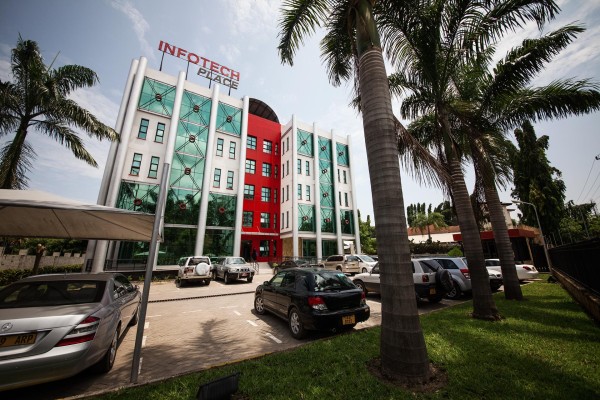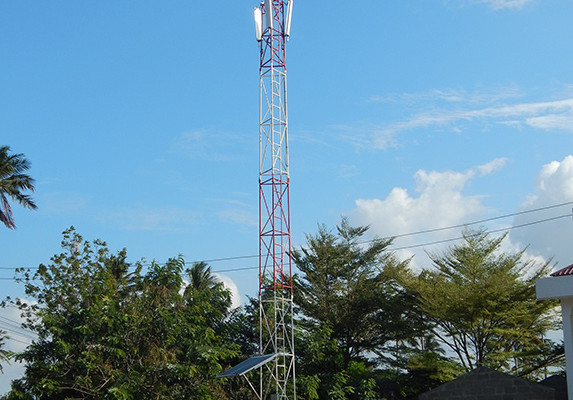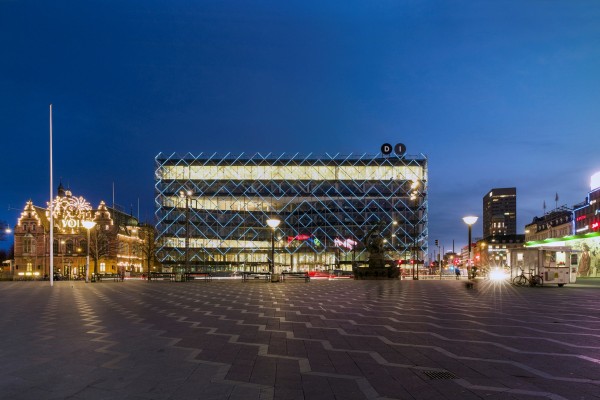This website uses cookies so that we can provide you with the best user experience possible. Cookie information is stored in your browser and performs functions such as recognising you when you return to our website and helping our team to understand which sections of the website you find most interesting and useful.
Lars Kolind invests millions in Danish internet project
Copenhagen based tech company BLUETOWN, who provides internet connectivity to sparsely and unconnected areas across the world, is joined by business magnate Lars Kolind.
A Danish led effort to connect billions of people in unconnected areas to the internet raises 14 million DKK investment from business magnate Lars Kolind.
The Copenhagen based tech company BLUETOWN, led by the former CEO of Nokia Denmark, Peter Ib, receives an important push in their efforts to install internet masts in notably Africa and India and thereby enable that millions of people are finally able to connect to the internet at a price they can pay.
BLUETOWN was founded in 2012 and Peter Ib joined as the company’s fourth employee in the following year. As of today, BLUETOWN employs over 60 people, about half of them in Denmark.
»We started with a more or less blank sheet, but a strong vision to provide internet connectivity to people who do not have the possibility to use the internet. We target unconnected areas where the telecommunication industry is currently not present. These areas cover billions of people and give us an enormous potential, which Lars Kolind fortunately also sees. Our core business is to offer basic connectivity solutions at a price that people can pay. If this can succeed at a small scale in a few villages, it can succeed at a large scale in major cities, and that is what we are aiming at«, Peter Ib explains to Berlingske.
Lars Kolind will enter BLUETOWNs board of directors at an extraordinary general meeting in May, and thereby becomes closely involved in achieving the targeted growth in the size of hundreds of millions and a revenue measured in billions of Danish Kroner.
»It is a fairly large investment to me, and I usually invest at an earlier stage. I believe BLUETOWN can make a big difference for a very large number of people, which is something I want to be a part of. At the same time, BLUETOWN has the potential to become a very large and very profitable business, so nothing is holding me back. I have been part of launching more than 25 companies, and sometimes you have a gut-feeling, without objectively being able to explain why«, Lars Kolding says to Berlingske.
Among the 25 companies, of which he has sold his shares of 20 already, about half has been involved with technology, communication and/or the internet.
»All startups contain great risk, but one of the largest risks is that no one backs them. In Denmark we have just as many promising startups as in Silicon Valley. The difference is that much fewer investors are backing them, and the more who does this, the smaller is the risk«, he states and calls it »a fairly easy decision« to invest in BLUETOWN.
BLUETOWN began in Tanzania in East Africa with 5 million DKK in support from the Danish aid agency DANIDA. Today, BLUETOWN has established country offices in Dar es Salaam, in Ghana in West Africa as well as Delhi in India, where the new Prime Minister has made it an official target to connect all Indians to the internet within the next 10 years.
»Particularly in India, we expect a very strong growth. We have to complete another 1.000 installations in India this year, and that requires attaining relatively large capital funds«, says Peter Ib.
BLUETOWN installs masts about 6 to 24 meters high with satellite dishes attached. The masts are powered by solar cells, and provides connectivity in a radius of about 200 meters. BLUETOWN then proceeds to sell data bundles similar to prepaid phone cards. In India, the most popular data bundle is a 2-megabyte daily package, which is largely the same pattern observed in Tanzania. Currently, BLUETOWN has around 30 masts installed and between 50 and 2000 users per mast.
»We recently made a test at a train station in India. It is a popular crossroad, which means we have between 8.000 and 10.000 daily users«, Peter Ib says.
He expects to be hiring more people in Denmark, but first and foremost around the globe, »where the work needs to be done«.
In May, BLUETOWN will be going on the stage at the conference Transform Africa in Rwanda’s capital Kigali, where BLUETOWN won an open tender offered by the local government and the United Nations. This has meant an important seal of approval of BLUETOWNs solution.
»It is typically the case in Africa that when something is being solved in one place, the solution will be copied in other places. Consequently, there is a positive movement right now, particularly in India and Africa, which we are trying to be a part of. For that reason, it is particularly important, that Lars Kolind joins now«, says the BLUETOWN CEO, who feels he has passed the test, since Lars Kolind is very cautious about where he invests his money.
BLUETOWN expects a positive result in 2017 and aims for a revenue of 153 million dollars in 2019.
According to the International Telecommunication Union, a United Nations agency, 55% of the world’s population is currently without access to the internet. In Africa, the number is a staggering 84% percent.
*The following link is in Danish*
http://www.business.dk/digital/lars-kolind-skyder-millioner-i-dansk-internetprojekt



